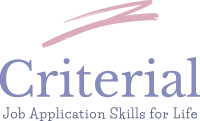There’s a short and a long answer about how to apply for Government Jobs where you work.

Simple Answer?
As if you were an outsider.
Long Answer?
As if you were an outsider, and here’s how.
My Own Experience Recruiting for Government Jobs
I’ve been involved in dozens of recruitment’s for Government Jobs with internal applicants. I can’t recall one I have been on where we selected someone already in the team.
Maybe that’s just luck (for me, not so much for those applying) or that’s the approach the team members took, or, just a random coincidence. It’s doesn’t matter really.

The stats I can think of off the top of my head recruiting for government jobs:
- One project officer role – 4 internal applicants of which we interviewed 1 (just*), not on the order of merit
- One senior advisor role – 2 internal applicants, we interviewed both, neither on the order of merit.
- Both of these applicants had even worked in the role!
- One contract manager role – 4 internal applicants, interviewed 2 (1 of those just*), neither on the order of merit.
- One senior advisor – 4 internal applicants, interviewed 3, 1 on the order of merit.
The thing is, being in the team already does not guarantee you an interview, much less a job. I have said in many other blogs no one goes to the time effort and expense of recruitment to just select someone they already know. The good old days of jobs for people in the team are long gone.
What “Being Known” Involves
Let’s have a look at the implications of being known, either in the workplace or by members of the panel.
If Anything, You’re at a Disadvantage

If you’re well known where your work, that means your strengths as well as your weakness are out there. Let’s look at what that might actually mean.
Strengths
People knowing your strengths is a good thing. They know what you’re capable of and what you do well.
What you do well may be relevant to your role and/or the role you’re applying for. What you do well may just what your known for, not necessarily what you would want to be known for or even the job you do.

Whose workplace doesn’t have ‘the spreadsheet guy’, or, ‘the tech/computer girl’ – the people you go to when you have a problem just because you know you’ll get help.
What about you? What are you known for?
I was once employed in a new role somewhere I already worked. I’d been in the job for some months and my boss at the time confided in me some months later that the “unofficial referee report” he got about me was, and I quote:
“He’s a pain in the arse but his work output is worth it“.
To contextualise that, the reference comes from my personality (being a textbook Meyers Briggs INTJ personality) I tend to question lots of things. I don’t just think outside the box, I question the existence of a box to think outside. That quality is valued in some Government jobs; it is frowned upon in others. Indeed, in some workplaces its frowned upon and actively discouraged. Let’s just say that’s where I was.
I still own that by the way. My work output was and is worth it; as is my ability to question.
Weaknesses
As much as people may know your strengths, they may also know, or perceive, your weaknesses.
Knowing and perceiving things are different things. I’ll explain shortly in reference to biases.
Panel members are allowed to use what they know about you in making a decision. It’s not just down to what you say on the day. So if you go into the process selling yourself as having strong skills but they are things you have shown you can’t do. The panel can also seek clarification from referees as to your claims if they sense there is something just not quite right in what you’re saying.
Biases
All human beings suffer from biases. They’re inescapable. “That’s discrimination” I hear you scream! No. Let me explain. How human beings think, our innate mental machinery, suffers from bias:

We tend to perceive what we expect to perceive. A corollary of this principle is that it takes more information, and more unambiguous information, to recognize an unexpected phenomenon than an expected one“
https://www.ialeia.org/docs/Psychology_of_Intelligence_Analysis.pdf (p8)
When you’re known therefore, you have to present more information to change someone opinions that someone who is a compete unknown because no one has a perception of them already.
Going back to what you know and what you perceive, if the perception of some or all the panel interviewing you is of a particular thing, it is going to be hard work to change.
Why is it not discrimination?
Cognitive biases are mental errors caused by our simplified information processing strategies. It is important to distinguish cognitive biases from other forms of bias, such as cultural bias, organizational bias, or bias that results from one’s own self-interest. In other words, a cognitive bias does not result from any emotional or intellectual predisposition toward a certain judgment, but rather from subconscious mental procedures for processing information. A cognitive bias is a mental error that is consistent and predictable“.
https://www.ialeia.org/docs/Psychology_of_Intelligence_Analysis.pdf (p111)
The worst thing about thinning biases is they’re usually unconscious so very hard to combat.
If you want to read more refer to the excellent text linked above Psychology of Intelligence Analysis published in 1999 by the “Center for the Study of Intelligence” at the CIA (yes the CIA – the Central Intelligence Agency).
Consider Your Competition
Your competing for government jobs against people who are coming from externally and know they have to put their best foot forward. If you’re lazy, trust me it shows when you’re being compared to others making an effort.

Once again using a race analogy as I often do:
- Your competition has trained for weeks, tapered at the right time, watched their diet and got good night’s sleep before the race.
- You trained once or twice in the weeks leading up to applications closing, you turned up on race day, had your old kit, and, you had a big night the night before of burgers and alcohol but you figured you could because they knew you that they give you a handicapped start but they didn’t.
It’s going to show!
Your Written Application
So, back to answering the “As if you were an outsider, and here’s how” issue.
Assume Nothing
Spell out your examples…
Include facts and figures…
It is going to feel like you’re telling the reader to suck an egg when you’re explaining things they already know about you. That’s not a bad thing. In my Completing Selection Criteria course I say in describing the STAR method and how to paraphrase the criterion in your answer, it feels like you’re telling someone to suck an egg – but what’s it’s in fact doing is making it easy for the reader to know what you’re talking about and makes you easy to select for interview.
The Panel May Not Know You
There is usually almost always an independent person on the panel. That person will almost certainly not know you or what you have done and will shortlist you based only on what they read. If you give them no details and it comes to the shortlisting discussion, they are going to advocate that you don’t get an interview, because you haven’t given enough detail.
Getting an interview sometimes comes down to a discussion and votes as to who gets interviewed. When you already have one vote against you, it doesn’t’ take too much more to miss out on an interview.
What If Someone Contests Your Appointment?
Reviews of appointments for Government jobs happen. They happen regularly.
Think of what will happen if your application is written assuming everyone knows you and what you’ve done. It’s got almost not specific detail. If your appointment gets reviewed and someone from a review panel or the Industrial Commission reads your application and asks the panel;
“How did this person get shortlisted? There’s no detail in this application.“
What are they going to say? That immediately and significantly calls into question deliberate bias and unfair process.
Your Interview
Everything mentioned above about your written application stands for your interview.

Additionally…You’re almost certainly going to need to turn up to your workplace. This means seeing people you know well. That goes against the need to present yourself as if you’re putting your best foot forward and want the job you’ve applied for.
Some strategies for that…
Do Not Come to Work That Day
If you can, avoid coming to work that day. Take the day off to focus and prepare. By being at work you could possibly be dealing with some hot issue or putting yourself in a pressure situation. Unless you’re extremely good at settling yourself in a moment, being under pressure or stress or flustered before you walk into an interview is not something that is going to help you.
Leave the Building Before Hand if you do Come to Work
If you must come to work, definitely set aside some time before the interview to go away. Give yourself at least an hour. Leave the building, go somewhere you won’t see people you know – so don’t go to the coffee shop at the front door.
You need time to focus, disconnect from whatever has been going on and settle yourself. Think through your examples, and think about how to answer the questions. You should be planning to exceed the panels expectations in your answers.
Meet Everyone in the Interview as if you don’t know them
Once again, it’ll feel weird, but that headspace aside – as you know you’re intentionally doing it – it means you’re not assuming anything.
Be explicit if you’re uncomfortable they’ll think you’re not you. Explain and say that you’re approaching the interview as if you are from outside, you are not assuming they know anything about you. Apologise if it feels strange for them too; that you are going through your examples in detail even though some of them may know the details but you are doing that for objectivity and so they can assess you fairly against other applicants.
The Takeaway

How do you apply for a job where you work? Simple Answer – as if you were an outsider. Relieving in a job, being in the team, working in the organisation; none of them guarantee you an interview, much less a job at the end of the process.
Criterial’s other blogs containing a range of advice and information are at https://criterial.com.au/category/blog/
* “just” meaning their application barely scraped in at the bottom of the ratings for those getting interviews.
Share this post
